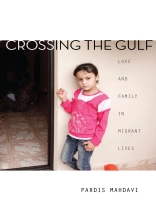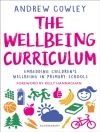The lines between what constitutes migration and what constitutes human trafficking are messy at best. State policies rarely acknowledge the lived experiences of migrants, and too often the laws and policies meant to protect individuals ultimately increase the challenges faced by migrants and their kin. In some cases, the laws themselves lead to illegality or statelessness, particularly for migrant mothers and their children.
Crossing the Gulf tells the stories of the intimate lives of migrants in the Gulf cities of Dubai, Abu Dhabi, and Kuwait City. Pardis Mahdavi reveals the interconnections between migration and emotion, between family and state policy, and shows how migrants can be both mobilized and immobilized by their family relationships and the bonds of love they share across borders. The result is an absorbing and literally moving ethnography that illuminates the mutually reinforcing and constitutive forces that impact the lives of migrants and their loved ones—and how profoundly migrants are underserved by policies that more often lead to their illegality, statelessness, deportation, detention, and abuse than to their aid.
Daftar Isi
1. Im/mobilities and Im/Migrations
2. Love, Labor and the Law
3. Inflexible Citizenship and Flexible Practices
4. Changing Home/s
5. Children of the Emir:
6. Transformations and Mobilizations
7. Negotiated Intimacies and Unwanted Gifts
Tentang Penulis
Pardis Mahdavi is Associate Professor and Chair of Anthropology at Pomona College. She is the author of
Passionate Uprisings: Iran’s Sexual Revolution (Stanford, 2008) and
Gridlock: Labor, Migration, and Human Trafficking in Dubai (Stanford, 2011). She has been a Woodrow Wilson Center Fellow and a Google Ideas Fellow.












